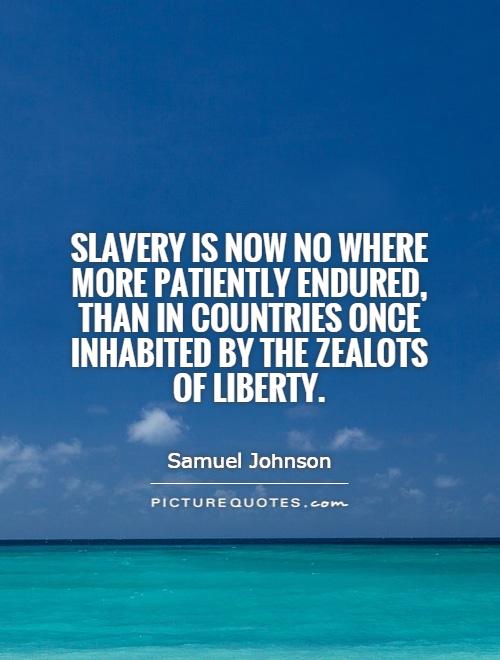Slavery is now no where more patiently endured, than in countries once inhabited by the zealots of liberty

Slavery is now no where more patiently endured, than in countries once inhabited by the zealots of liberty
Samuel Johnson, a renowned English writer and moralist of the 18th century, was known for his keen observations on society and human nature. His quote, "Slavery is now nowhere more patiently endured, than in countries once inhabited by the zealots of liberty," speaks to the paradoxical nature of the human condition and the complexities of history.In Johnson's time, the transatlantic slave trade was at its peak, with millions of Africans forcibly taken from their homes and sold into bondage in the Americas. The irony of this brutal system of exploitation existing in countries that purported to champion freedom and equality was not lost on Johnson. He recognized the hypocrisy of nations like England and the United States, where the ideals of liberty and democracy were espoused, yet the institution of slavery was deeply entrenched.
Johnson's statement also highlights the resilience of the human spirit in the face of oppression. Despite the horrors of slavery, he observed that many enslaved people endured their suffering with a stoic patience that was both heartbreaking and awe-inspiring. This speaks to the capacity of individuals to endure unimaginable hardships and maintain their dignity and humanity in the face of dehumanizing conditions.
Furthermore, Johnson's words serve as a reminder of the enduring legacy of slavery and its impact on societies around the world. The scars of slavery run deep, and its effects continue to be felt in the present day. The injustices of the past have left a lasting imprint on the social, economic, and political landscapes of countries once inhabited by the zealots of liberty.












 Friendship Quotes
Friendship Quotes Love Quotes
Love Quotes Life Quotes
Life Quotes Funny Quotes
Funny Quotes Motivational Quotes
Motivational Quotes Inspirational Quotes
Inspirational Quotes